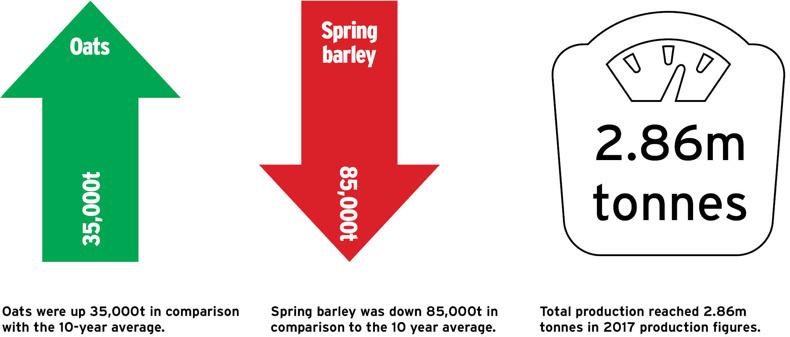When the Collins Dictionary named Brexit the word of the year for 2016, it is possible they did not realise the extent to which it would encompass every industrial industry. However, it has provided agriculture with a wake-up call and has focused minds on the changes that will be taking place.
This was the overriding message for Gavin Dick, AHDB’s Cereals & Oilseeds manager, from Agronomy 2018 which was held around the country last week.
“For farming, there are changes taking place in the operating environment both in a business and political sense – farmers need to be aware of the change and how to manage that process,” he said.

With reports of a large number of whole farm reviews taking place not just on arable farms but on all farms this year it may prove to be a crucial one where farmers establish the status of their business and any potential vulnerabilities.
“A big focus that needs to be had in the next number of years is on soil health. We will need to start looking after our soil and take steps to improve it because it is the most important resource we have,” Gavin said.
When it came to specific talks from the event, the two subjects that stood out to Gavin were increasing problems around fungicide resistance, presented by Dr Fiona Burnett, and changes in Scotland’s cereal market dynamics, outlined by Julian Bell.
“There is convincing evidence that shows fungicide efficiency is diminishing across the board but especially with ramularia.
“The message we’re trying to get out there is the importance of having fungicide programmes in place that protect the options we have until the new chemistry arrives and when it does we hope to have it last longer.”
As always, much will depend on external forces to determine market prices. However, currently there are several internal factors that are working in farmers favour that have the potential to see prices remain at their present levels.
“There is strong demand for malting barley. Also, distilleries have shifted away from maize and are instead using wheat which gives the price a boost.
“Overall, I think this year’s event has given a more optimistic outlook than previous ones, but we still need key deviants to go our way.”
Many growers will be turning their thoughts towards winter crops that were planted under difficult conditions.
“For most, sowing as well as harvest was severely disrupted by the weather. I think if the autumn-sown crops establish ok and come out in reasonable shape it will make a substantial difference.”
Other factors, like the Vivergo Fuels bioethanol plant remaining closed, may create a situation where surplus crops from the south will make their way further north.
However, Gavin reiterated the fact that given Scottish growers are heavily dependent on high-quality malt barley, the demand for whisky will remain key to profitability.







 This is a subscriber-only article
This is a subscriber-only article













SHARING OPTIONS: